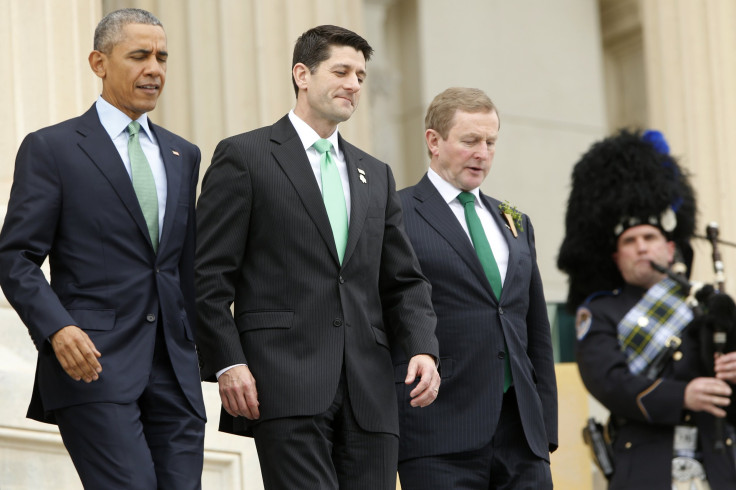House Republicans Float Controversial Budget Plan

U.S. House Republicans on Tuesday insisted they will proceed with a fiscal 2017 budget plan despite a flat-out rejection from their party’s fiscal hawks that poses an important test of Speaker Paul Ryan’s leadership.
The $3.9 trillion proposal, which the House Budget Committee hopes to embrace formally on Wednesday for an eventual floor vote, would provide Ryan with a first step in his political goal of uniting the Republican Party behind a detailed policy plan ahead of November’s presidential and congressional elections. The plan aims to achieve a balanced budget within a decade.
“I promise in this speakership that we’re not going to have a top-down, cram-it-down-people’s-throat kind of leadership,” Ryan told reporters.
“We’re going to make decisions as a team. We’re going to push power out to the members, and we’re going to make a team decision on this issue,” he said.
But the House Freedom Caucus, which includes dozens of outspoken conservatives who dethroned Ryan’s predecessor, John Boehner, has been complaining for months about a $1.07 trillion ceiling for discretionary spending that was enacted into law last November. It says the cap should be $30 billion lower and has warned leaders of its opposition.
Several Freedom Caucus members sit on the House budget panel, including Representative Dave Brat, a Virginia Republican who described the group’s position as mainstream: “We’re where the American people want us to be.” Brat said he was leaning toward voting against the proposal in a committee work-session set for Wednesday.
Stubborn opposition among Freedom Caucus members, despite weeks of behind-the-scene talks among House Republicans, call into question the ability of party leaders to muster the 218 votes needed to pass the budget without help from the chamber’s 188 Democrats.
Rep. Chris Van Hollen of Maryland, the panel’s top Democrat, slammed the Republican proposal as a plan that would hurt the middle class and harm the Medicare healthcare program for the elderly and disabled.
Democratic attacks and fiscal hawk opposition are leading some Republicans to call for a seldom-used “Queen of the Hill” strategy that would allow members to consider different proposals but deem the one with the most votes as having passed the chamber.
The budget blueprint is nonbinding, meaning it is not subject to President Barack Obama’s approval. But it provides guidance to appropriators as they write bills to fund an array of government programs beginning Oct. 1, the start of the next fiscal year.
© Copyright Thomson Reuters 2024. All rights reserved.





















